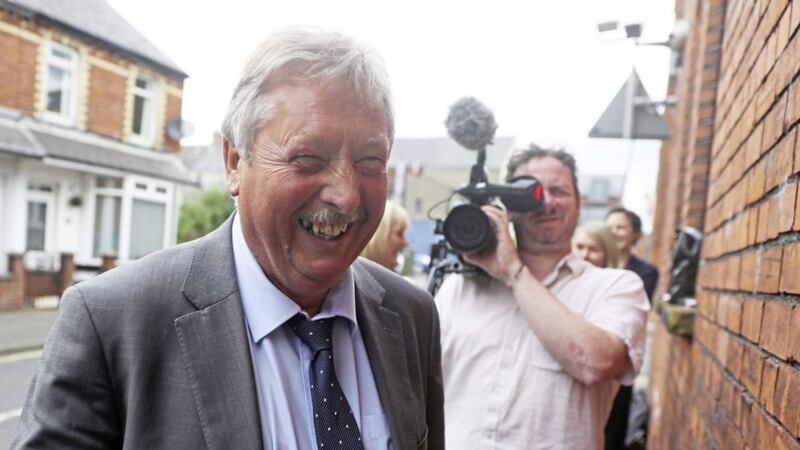UNBELIEVABLE. Bizarre. Unprecedented. Words once famously used in the context of political convulsions in Dublin.
Add in meltdown and disarray and we are still only approaching an approximate description of the chaos that has engulfed the DUP.
Yesterday had begun with what appeared to be a breakthrough in a stand-off with Sinn Féin that threatened to bring down the devolved government.
Following late-night talks with the two parties, Secretary of State Brandon Lewis had agreed to introduce Irish language legislation at Westminster to clear the way for Paul Givan to take up the post of first minister.
It quickly became apparent, however, that new DUP leader Edwin Poots was acting without the knowledge or support of the large majority of his party.
Remarkably, he had even openly defied senior colleagues by walking out of a heated meeting to proceed with Mr Givan's nomination.
As party figures publicly criticised their leader on the airwaves, he was summoned to another meeting in east Belfast which last night resulted in his dramatic resignation.
It is the speed with which the ‘Poots putsch’ unravelled that is unprecedented even for politics in this troubled corner of Ireland.
Elected on a promise to reform a divided party and listen to its members, the Lagan Valley MLA achieved the impressive feat in just a few short weeks of not only failing to heal those divisions but alienating the bulk of his own supporters too.
It was obvious to any observer that once Arlene Foster was removed as first minister, Sinn Féin was going to use its veto on electing a replacement to seek assurances over an Irish language act.
As former special adviser Lee Reynolds told this paper in a fascinating insight into the DUP’s travails, it appeared that whatever plan was in place was no more than “a collection of assumptions that everything would fall into place the way they wanted and when it doesn’t, go into denial, wishful thinking and blaming others”.
In his first serious test as leader, Mr Poots found himself comprehensively outmanoeuvred and now unceremoniously dumped barely a month after delivering the same fate to Mrs Foster.
The reaction to the DUP’s implosion has been largely one of disbelief. The concern now is the destabilising effect it could have on the wider political process.








